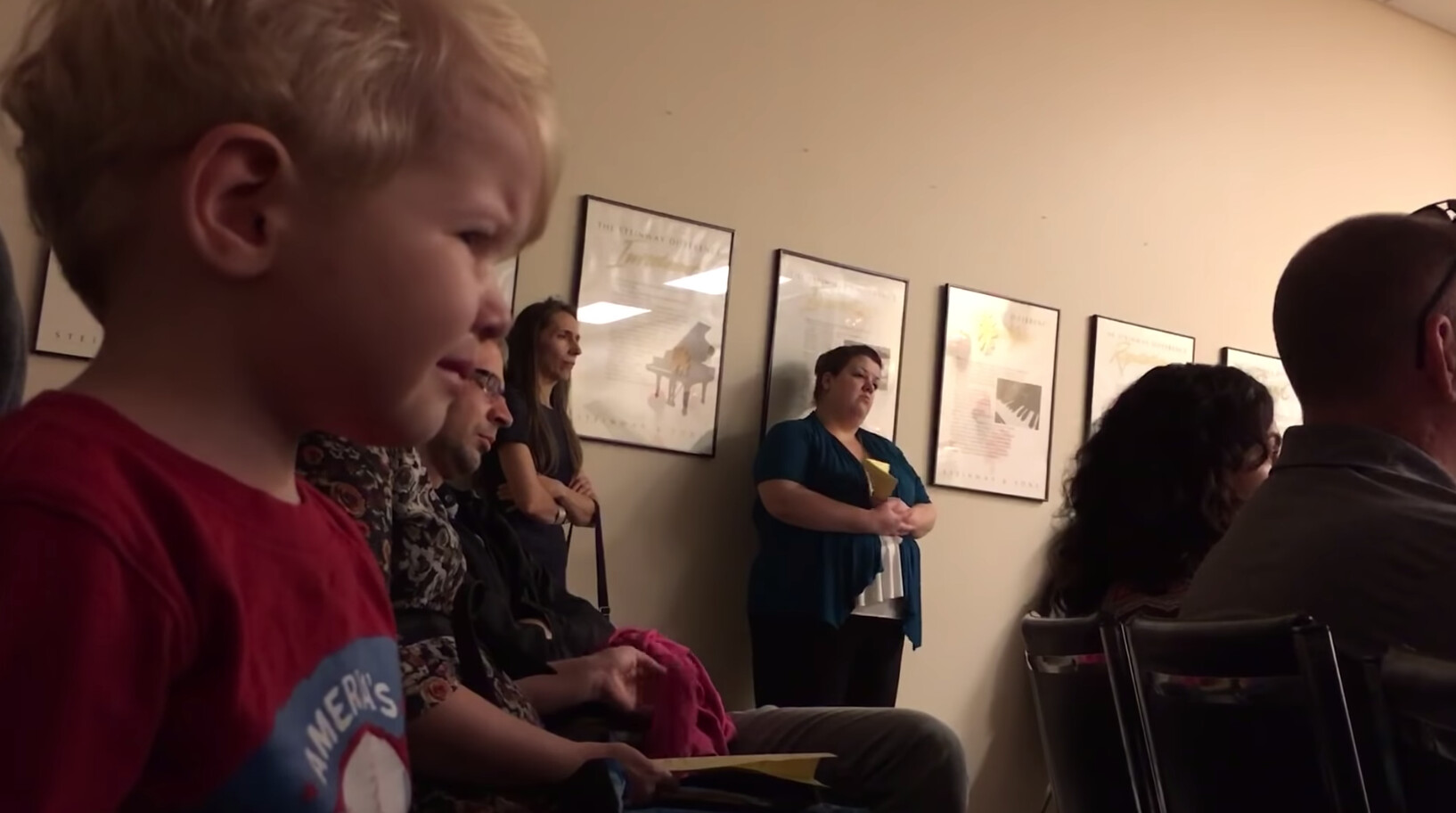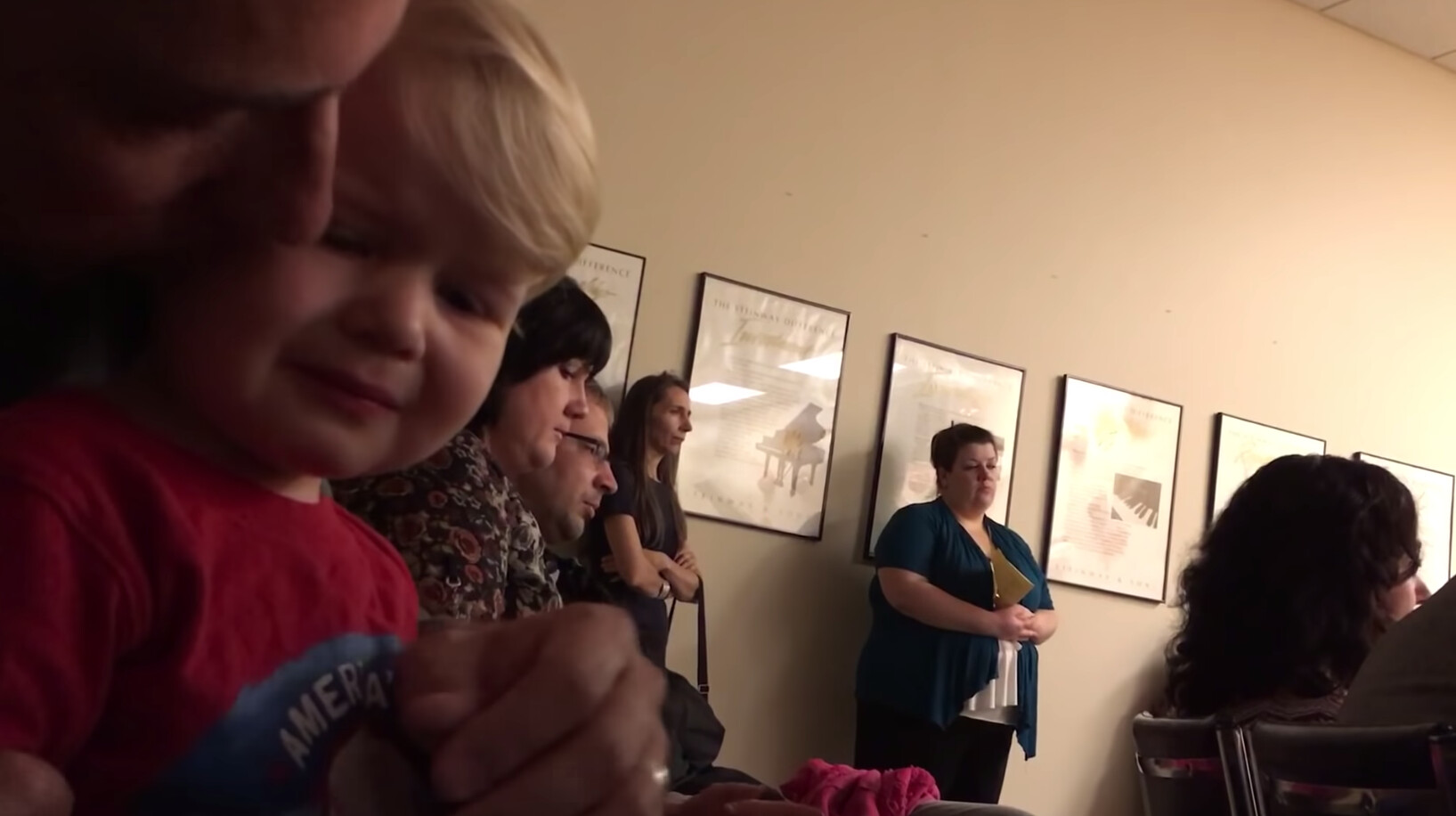Beethoven’s Moonlight Sonata leaves a Florida toddler overcome with emotion at his sister’s piano recital.
His tear-filled response to hearing the classic piece racked up over 890,000 views on YouTube and made the little boy one of the most famous preschoolers in the world. He now even has a listing in the Internet Movie Database (IMDb) website.

It all started after Tyler Noftz’s mother shot a video of him sitting on his father’s lap at a recital. Young Tyler, who was just 2 at the time, had never heard the classic Moonlight Sonata before and quickly became overwhelmed with emotion; he bravely fought back the tears but to no avail.
As seen in the November 2016 video, the tears soon welled up and began running down Tyler’s little face as his mother recorded his unexpected reaction on a cell phone. But she has to eventually break away from filming to wipe away a tear with her finger. Tyler’s father, Josh Noftz, also comforts his son and kisses him, but this does little to console the teary toddler music lover.
After the heartfelt video was posted online by Josh, it prompted likes and comments from family and friends and the general public from around the world. Not only that, even musicians got in touch to beg the family to buy Tyler an instrument, as he had a musical affinity that needed to be nurtured.

One musician commented that Tyler’s inherent empathy for classical music could find expression if he were to learn to play a musical instrument.
The musician wrote: “I was a professional musician for many years and I hope that you will let Tyler touch the piano with your guidance. Chances are he will react positively to it and if he does, I do hope that you will invest in lessons for him. I likely won’t live long enough to see the fruits of his efforts, but perhaps you will. I will tell you that he’s a deeply sensitive and beautiful child and could do great things with music. I wish you all the best in your journey and thank you for sharing him with the world.”

According to a 2011 study, the researchers from McGill University in Montreal, Canada, have found a direct link between music and the pleasure chemical dopamine in the human brain. The Canadian study, published by the journal Nature Neuroscience, established the direct link between the elation stimulated by music and the neurotransmitter dopamine. The brain chemical may also explain why human cultures worldwide are affected by the power of music.
Young Tyler’s empathetic reaction to Moonlight Sonata touched many hearts. Watch his heartwarming reaction in the video below:
Why Can Music Make Us Emotional?
Most of us have experienced that moment when you’re listening to a song and it just hits you in an emotional sweet spot and we start to well up. The mechanisms behind why this happens are not fully known, however, there has been broad research conducted into music’s capability to trigger an emotional reaction.
There have been multiple studies that have seen classical music create an emotional response in listeners. This is believed to be a more complex arrangement of emotions than a “happy” listener of dance music would experience. The mixture of emotions includes a ‘partially positive’ feeling that allows the listener to feel the music and not become uncomfortable and want to leave. It’s like a mixture of “happy crying” and “sad crying” merged together.
Most kids of Tyler’s age would probably be crying due to the burden of having to sit through a classical music recital, however, Tyler’s reaction has prompted musicians across the world to urge his parents to buy him a musical instrument.





